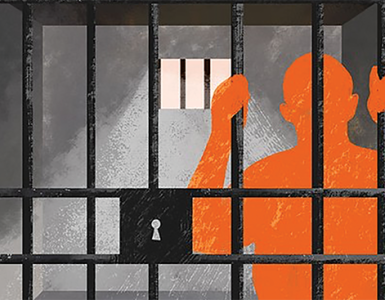FRAMEWORK: Cohabitation has become increasingly common in South Africa, with the number of cohabitants doubling annually. Get into grips with pros and cons of this living arrangement…
By Robyn Shepherd
Cohabitation, commonly known as living together, common law marriage, or a domestic partnership, is not acknowledged as a legal relationship by South African law. Consequently, no legal framework exists to govern the rights of individuals in such partnerships.
Cohabitation refers to individuals of any gender residing together without being legally married. Historically, these arrangements were labelled as extramarital cohabitation.
In essence, men and women living together do not possess the same rights and responsibilities as married couples.
The absence of legal recognition as a marriage means that the rights and duties conferred by marriage do not apply to cohabitants, regardless of the relationship’s duration. Contrary to popular belief, merely living with a partner for a significant period does not establish a common law marriage conferring marital benefits. Cohabitation has become increasingly common in South Africa, with the number of cohabitants doubling annually.
Unlike marriage, which is governed by specific laws ensuring protection for the individuals involved, cohabitation lacks such legal safeguards. Cohabitants have no legal obligation to support each other and no enforceable right to claim maintenance.
South African banks typically do not permit joint accounts for cohabitants; accounts are usually opened in one partner’s name, granting the other co-signing rights.
Consequently, the account holder bears full liability for any debts incurred. Judicial intervention and universal partnerships
Despite the lack of statutory recognition, South African courts have occasionally provided relief to cohabiting couples by recognising an express or implied universal partnership. A universal partnership arises when parties act as partners in all material respects without a formal partnership agreement.
When such relationships dissolve, courts may award a share of assets acquired during the partnership. Establishing a universal partnership is challenging and requires proof of mutual contributions aimed at a profitable enterprise that benefits both parties.
While cohabitants do not enjoy the same rights as married couples, certain legislation does provide similar recognition. The Domestic Violence Act acknowledges cohabitation relationships, and the Medical Schemes Act 131 of 1998 defines a dependent to include a ‘partner.’
Both the Income Tax Act and the Estate Duty Act treat cohabitants as spouses for tax purposes, recognising permanent same-sex or heterosexual relationships. Additionally, life insurance policies permit partners to be named as beneficiaries, provided the nomination is clear.
Furthermore, the law on child maintenance does not differentiate between married and unmarried parents, ensuring protection for children regardless of their parents’ marital status.
Cohabitation agreements
Cohabitants can enter into agreements to regulate their obligations and the financial consequences of their union’s termination. These agreements, known as cohabitation contracts or domestic partnership agreements, typically cover financial arrangements during the relationship and the division of property upon its termination. Courts generally enforce these agreements, provided they are not illegal, immoral, or contrary to public policy. Without such agreements, cohabitants have no legal protection unless a universal partnership can be proven.
In the absence of a cohabitation agreement or proven universal partnership, property acquired prior to the relationship remains with the original owner, and no community of property is established.
Cohabitants do not automatically gain property rights by virtue of their relationship, though they may invoke contract, property, or unjust enrichment laws to enforce their rights. The Domestic Violence Act grants cohabitants a right of occupation and provides remedies against violence, including protection orders.For co-owned property, both partners hold an undivided share and are jointly liable for associated expenses. In case of default on mortgage payments, both partners are accountable.
If the relationship ends and there is no cohabitation agreement, the property owner retains ownership, and the non-owning partner may be evicted.
* The article is sourced from GoLegal. The author of the article, Robyn Shepherd, is a lawyer at the Cape Town-based law firm SchoemanLaw


































